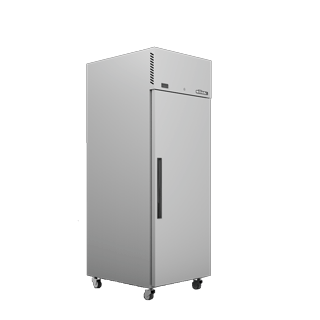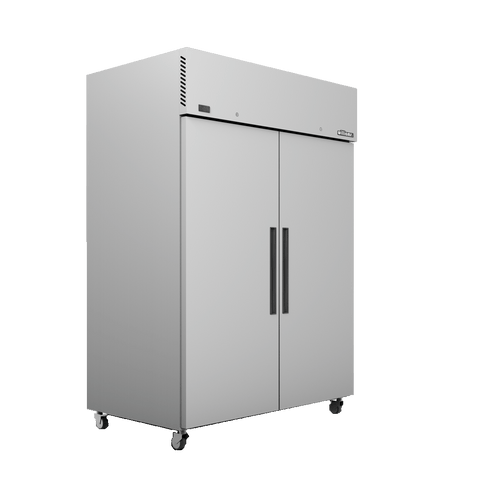
Recently Viewed

 Anvil Proving Cabinet - POA0001
Anvil Proving Cabinet - POA0001
860(W) x 995(H) x 591(D)mm


 Prismafood Single Door 12 Tray Food Proving Chamber- TP4-44
Prismafood Single Door 12 Tray Food Proving Chamber- TP4-44
1100(W) x 964(D) x 900(H)mm

 Everlasting Retarder Prover - RPE1790
Everlasting Retarder Prover - RPE1790
790(W) x 2050(H) x 742(D)mm

 Everlasting Retarder Prover - RPE2790
Everlasting Retarder Prover - RPE2790
790(W) x 2050(H) x 1042(D)mm


 Williams Crystal - One Door Stainless Steel Upright Bakery Retarder RC1TSS
Williams Crystal - One Door Stainless Steel Upright Bakery Retarder RC1TSS
727(W) x 922(D) x 2128(H)mm


 Everlasting Retarder Prover - RPE5790S
Everlasting Retarder Prover - RPE5790S
790(W) x 2050(H) x 1042(D)mm

 Coldline Single Door Vision Retarder Prover - EN60x80 - AF60/1M
Coldline Single Door Vision Retarder Prover - EN60x80 - AF60/1M
810(W) x 1096(D) x 2215(H)mm

 Coldline Single Door Vision Retarder Prover - EN60x40 - AF30/1M
Coldline Single Door Vision Retarder Prover - EN60x40 - AF30/1M
810(W) x 796(D) x 2215(H)mm

 Coldline Levtronic Cabinet - 700Lt - A70/1FH
Coldline Levtronic Cabinet - 700Lt - A70/1FH
740(W) x 815(D) x 2085(H)mm

 Coldline Levtronic Cabinet - 650Lt - A80/1FH
Coldline Levtronic Cabinet - 650Lt - A80/1FH
810(W) x 715(D) x 2085(H)mm

 Moretti Forni Prover with Humidifier Castors to suit Serie F Ovens - F L/100U - F L/100U
Moretti Forni Prover with Humidifier Castors to suit Serie F Ovens - F L/100U - F L/100U

 Moretti Forni Prover with Humidifier Castors to suit Serie F Ovens - F L/80U - F L/80U
Moretti Forni Prover with Humidifier Castors to suit Serie F Ovens - F L/80U - F L/80U

 Moretti Forni Prover with Humidifier Castors to suit Serie F Ovens - F L/60U - F L/60U
Moretti Forni Prover with Humidifier Castors to suit Serie F Ovens - F L/60U - F L/60U


 Williams Crystal - Two Door Stainless Steel Upright Bakery Retarder RC2TSS
Williams Crystal - Two Door Stainless Steel Upright Bakery Retarder RC2TSS
1466(W) x 922(D) x 2128(H)mm
Perfect proofing, every time.
Our range of commercial bread provers is designed to give bakers, cafes, and restaurants total control over the dough proofing process, giving you more reliable conditions and better bread for your customers.
From tangy artisanal sourdough and soft brioche buns to everyday loaves, a professional bread prover helps the quality, texture and consistency of your bread.
It gives you a stable and controlled environment for your dough to rise in, encouraging the yeast to grow - leading to reliable baking with bread that has incredible flavour, and consistency.
At Restaurant Equipment Online, we stock a variety of bread provers to suit different kitchen layouts and volumes.
Whether you’re looking for a compact single-door unit, or need something large and spacious like a double-door model, you’ll find what you need here.
They include the key features you’ll need, like humidity and temperature controls and adjustable trays.
Our range features the top brands in the kitchen appliance industry, made with quality materials and built to last.
A dough proofer’s primary job is to create a stable environment with consistent conditions like even temperature and humidity levels.This allows the yeast in your dough to activate and ferment evenly.The effect this has in terms of quality if you’ll get uniform rising, consistent dough development both within each batch but also different batches.You’ll also get a better texture in your final result, meaning you’ll always have the perfect crust and light and fluffy results inside when you take your loaves, rolls or buns out of the oven.They get rid of the guesswork and inconsistencies that come with ambient proofing, making your kitchen more efficient and reliable.
Yes.To deliver you the even results you want from your dough before baking it or putting it in the dough roller is to keep the conditions consistent.This includes keeping the temperature consistent, whether you need it to be chilled or warmed up, along with keeping it at an even degree of humidity to cultivate the yeast.It also helps reduce the chances of accidentally overproofing your bread or proving it in conditions not conducive to the type of bread you’re making.
Single-door provers, as the name suggests, have a single door and are usually smaller in terms of height than double-door models.They’re ideal for smaller kitchens or lower production volumes and offer compact proofing capacity without taking up too much space.Some of them will also come with castors, making it easier for you to move them around as and when needed.
Double-door provers provide double the capacity and are better suited to high-output bakeries or restaurants needing to prove large quantities of dough simultaneously. They have more shelf tracks, meaning you can load up significantly more bread in a single batch.
Absolutely.Some of our bread provers come with built-in ovens, meaning you can streamline your baking process and maximise the potential of your kitchen’s footprint by removing the need for an additional oven.Options like those from Moretti Forni also come with castors, making it easy to rearrange or remove your bread prover as and when you need - which is an invaluable feature for smaller kitchens.These flexible designs are great for modular workflows and compact spaces.
Modern bread provers often include features like insulated double-glazed doors, energy-efficient heating elements, and programmable timers.All these features help to reduce power consumption during idle periods.Some models also offer rapid heat-up cycles and eco modes to help save on operational costs while maintaining consistent performance.You can also find plenty of models with energy-efficient refrigerants like R290, which also help keep your running costs down.